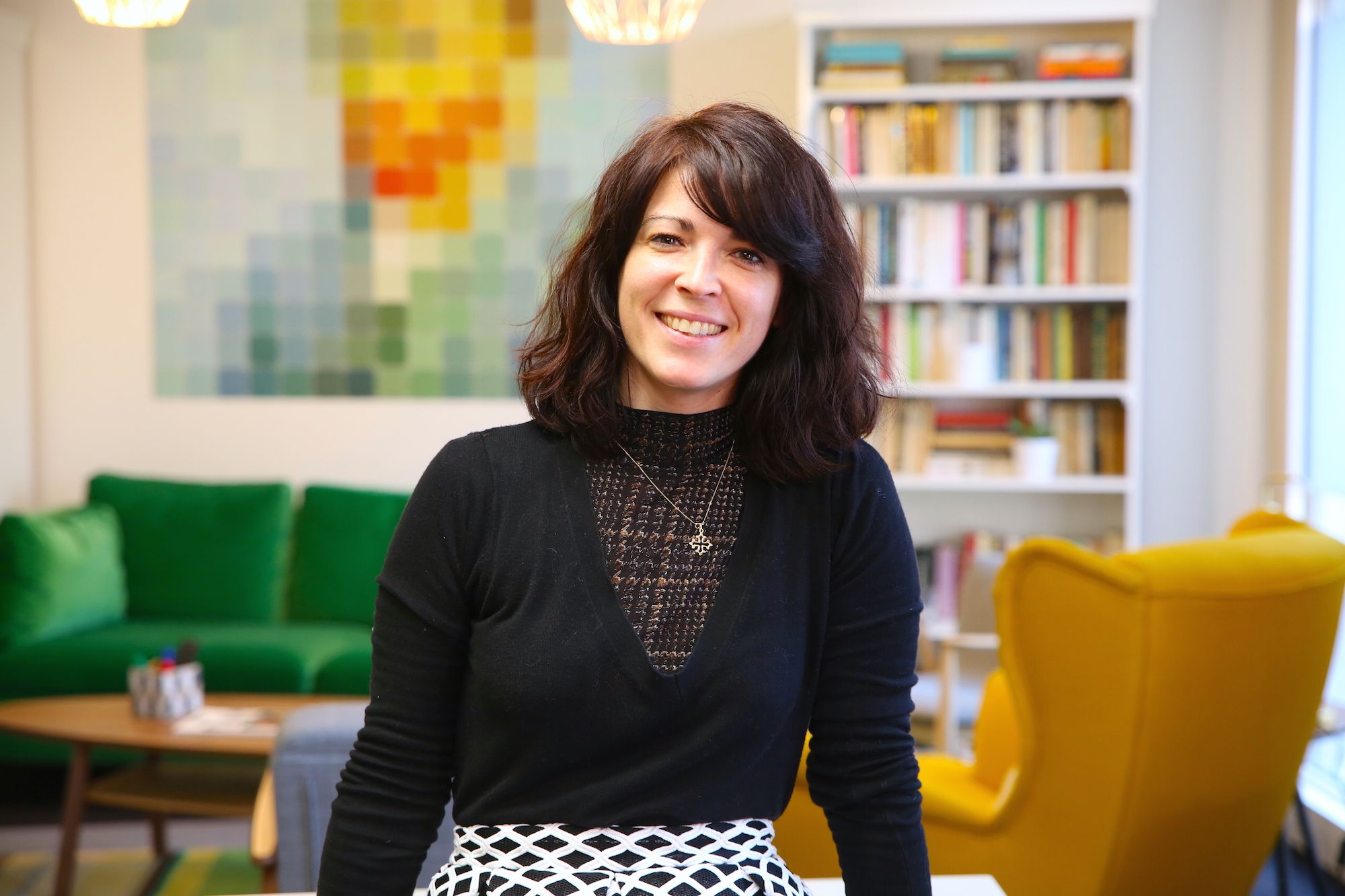Puedes leer este artículo en español aquí.
Aurélie Dailloux’s story is, in a way, a love story—a story of a city and of helping people. Aurélie studied hotel management and in 2006 and moved to Barcelona without knowing the language, but with the illusion of discovering a new city and being able to work in the kitchen of a hotel. She lived and worked in Barcelona for two years but developed carpal tunnel syndrome and had to leave the hotel business.
“For a while I tried to work at the reception but I couldn’t maintain the same connection with the client [that I enjoyed]. The hotel business is a sector where if you don't like the relationship with the client you should change profession.”
Back in her native France she received a proposal from Regus and decided to accept it.
“Regus is a great company, I learned many things in those six years I worked in different centers in Paris. At that time at Regus it was all very formal, they had not yet bought Spaces [there was no IWG holding company that replaced ‘Regus Group’ in 2016].”
That environment did not quite fit her way of being.
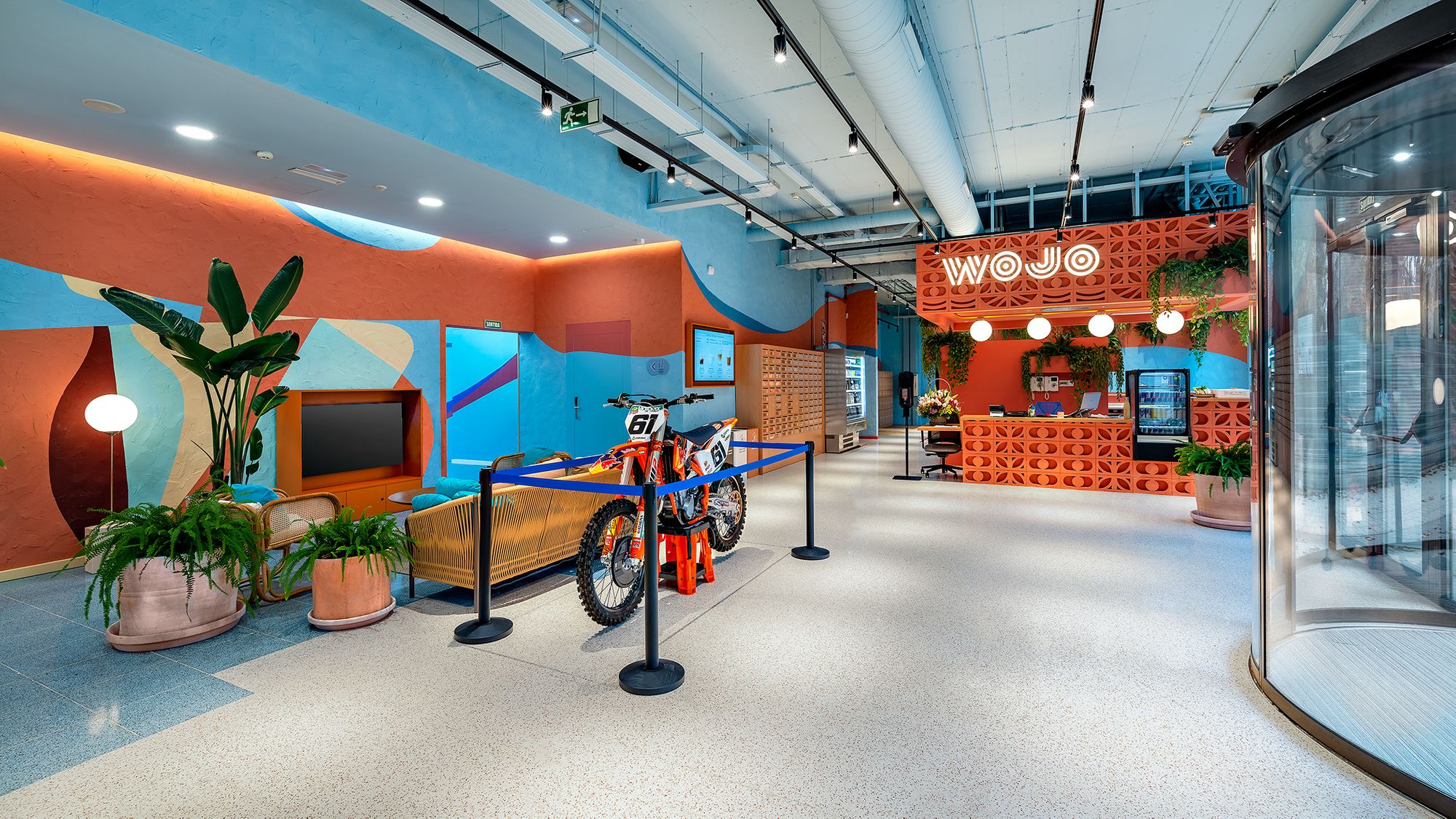
“In Spaces you can dress as you want, but in those years in Regus required a suit and the relationship with customers was always very formal.” After six years in Regus she had the opportunity to join Nextdoor (now Wojo) and did not think twice. “It was a very different company at that time. We only had a ‘small’ center with capacity for 350 members and in staff we were about seven or eight people.” I was curious to know why she took the risk of leaving Regus and she answered honestly: “it was not a risk at all because Nextdoor was backed by Bouygues, it was a project with lots of anticipated growth and little risk.”
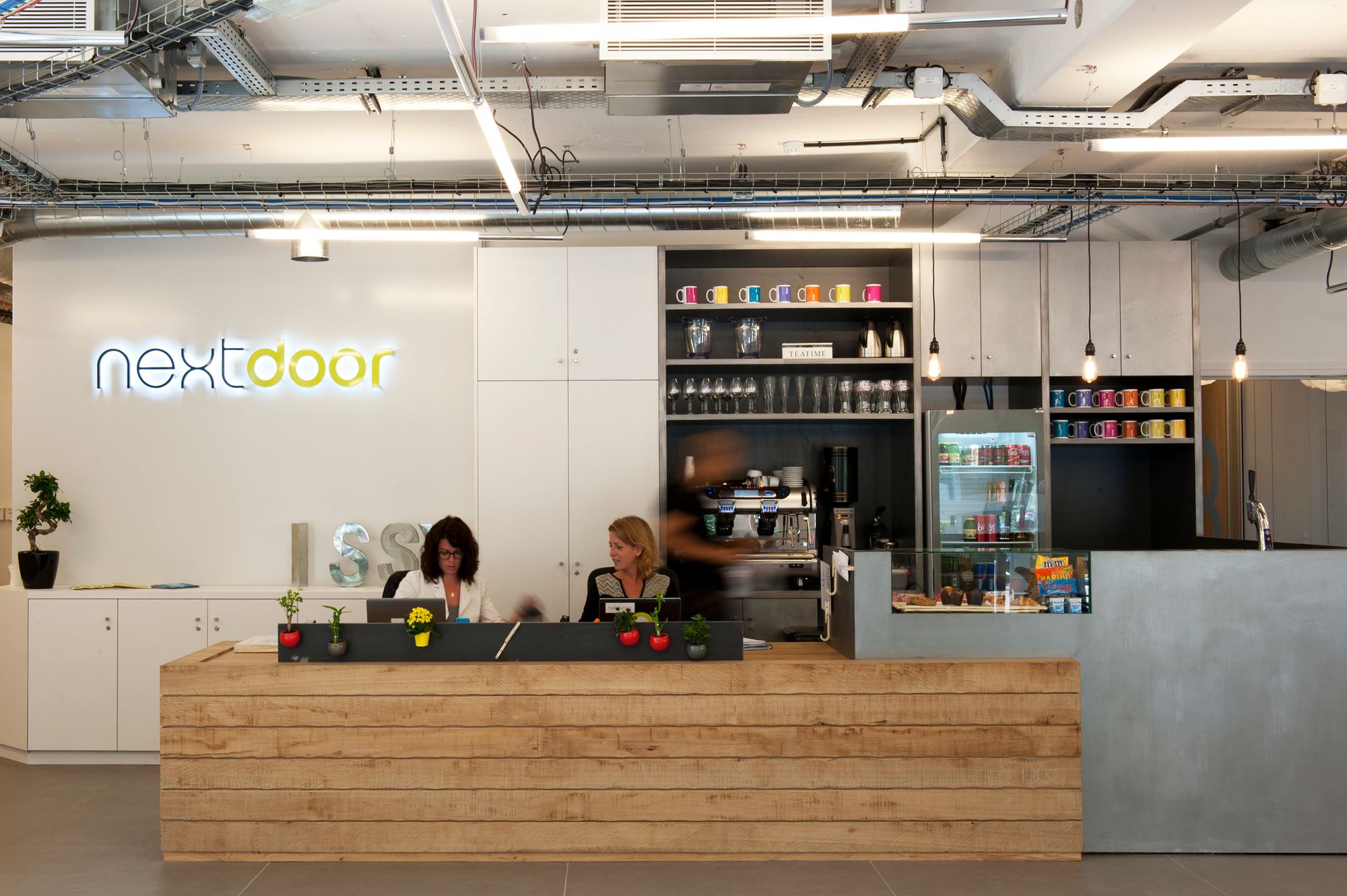
The question then was: Why leave Regus for Wojo? What is the difference between both projects? “Regus is a company that targets a different audience. When I was at Regus, among my clients I would find lawyers or architects with a very traditional mentality. Now with [the brand] Spaces the relationship is more relaxed. Back then everything was quite formal and, although both companies sell workspaces, Wojo (at that time known as Nextdoor) was more in line with my philosophy.”
“In my first center I knew all my clients. Although now—in a building with almost three times as many people—that is no longer possible, the idea remains the same; meeting people at a level that allows us to establish a personal relationship that facilitates the creation of an ecosystem, to connect people and promote the establishment of links between them are part of Wojo’s DNA.”
Aurélie continues: “When you do mini breakfasts to get to know each other or an after-work [event] it’s obviously not just a solution to reduce costs, but to build a community, to build an environment where people feel comfortable going to work.”
I wanted to talk about one of the factors that I think makes a small coworking space very different from a huge one like Wojo Poblenou (>8000 m2) in Barcelona; that is the fact that many of the people who work in these facilities did not necessarily choose to work from the location, and even in some cases the person who made the final decision was located in another country. Aurélie's service background shines through in her answer: “The space has to be welcoming but that is only part of it; we take care of them and even if they didn’t choose us (and are not happy) because it is far from their home. You try to get to know them, learn more about them, and see how you can make their life easier. For example, when you find out that they do yoga, you can volunteer that they use our terrace so they don’t have to travel and run around town.”
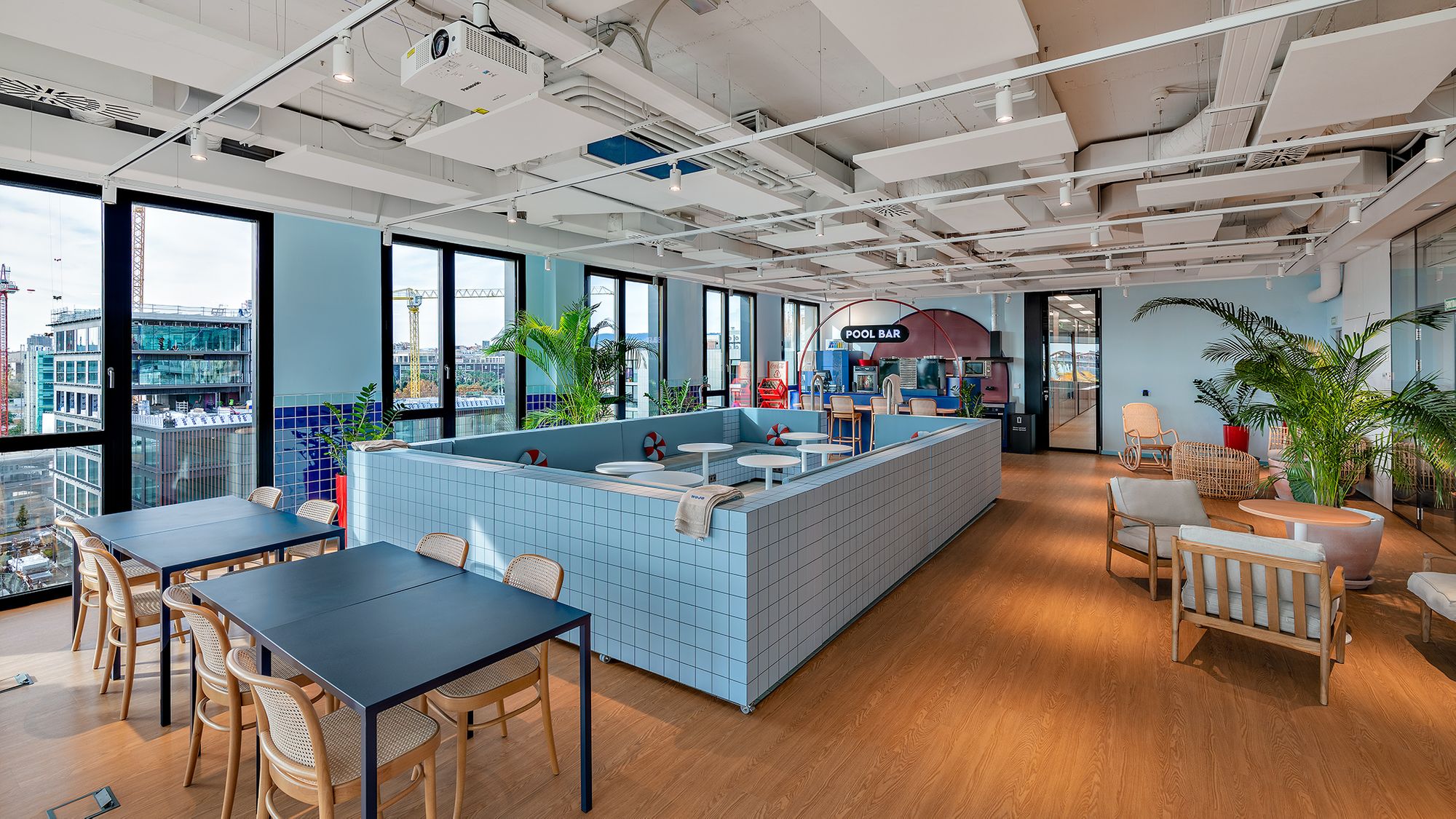
When I visited the Barcelona space, one of the factors that caught my attention was the low density of the building, which occupies 8305 m2 with just a few more than 950 members. That is to say, they allocate close to 9 m2 per user, while other coworking brands both national and international tend to hover around 5-6 m2 per occupant with similar prices ranges. I asked Aurélie about this fact and she explained that they attach great importance to the comfort of both customers and employees. Throughout the history of Wojo they have always sought customer feedback and this led them, for example, to create large common areas and try to offer a higher comfort than can be found in other spaces with a much higher density.
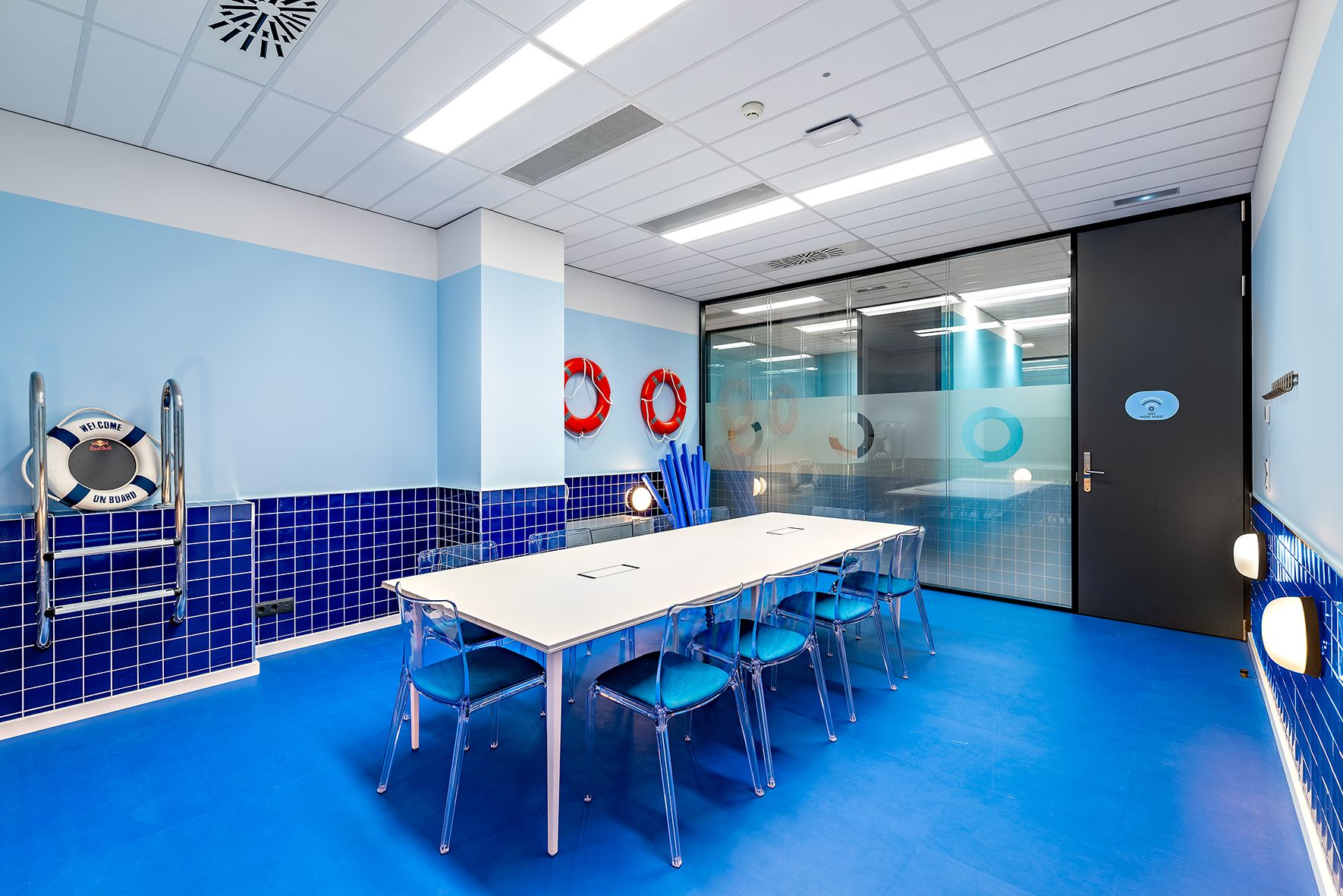
Another factor that caught my attention was what I defined as a somewhat offbeat style (Aurélie countered that it was a “fun” style) of some areas. Each building has a different character depending on the location, looking for local references, and beyond this, in some common areas and meeting rooms they offer more daring designs than you might expect: “You can offer different environments for different moments to your clients. You have fun rooms for creative sessions or if the client has a more serious CEO they can opt for a standard room—it‘s about giving the client different options.”
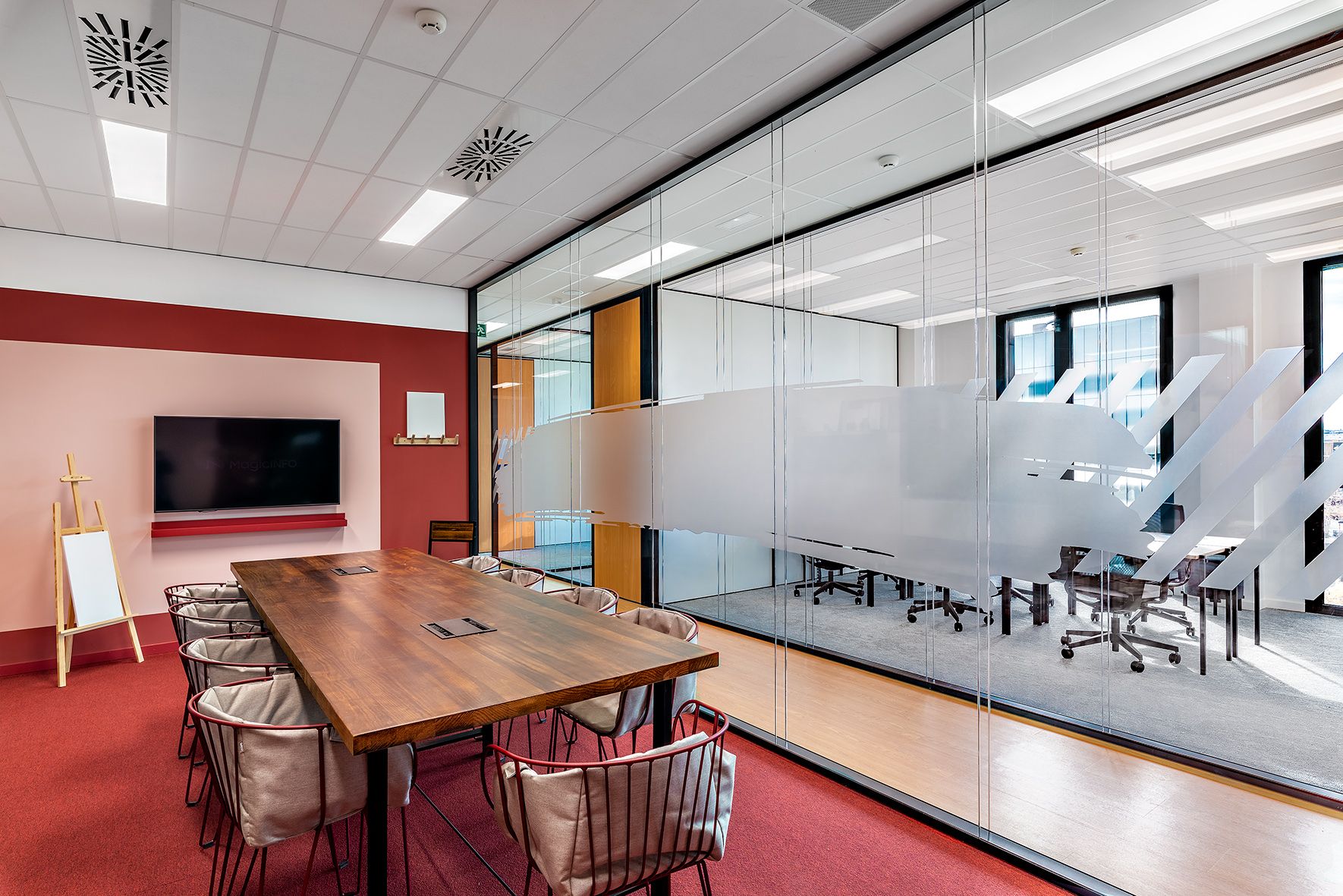
When you create a brand you obviously try at the service level to offer a homogeneous experience, and at the design level if you opt to keep the same design language everywhere you will also simplify things. But Wojo has gone another way by giving each space a different character and the results demonstrate not only great taste but all the savoir faire of its new owner Accor (acquired Wojo in 2018) from which they not only absorbed the customer focus of the hotel sector (or the obsessive search for feedback) but also a level of implementation that is striking, to say the least.
But why Barcelona? “In truth, I don't know the specific answer. I know that other territories such as Eastern Europe were considered, but based on the fact that Barcelona is a leading city in coworking; it’s close to France, not only physically but also in terms of character; the area has a lot of potential for development—it’s right across the street from the new Amazon offices in Barcelona; it was easy to make the decision.”
Back to her personal story: When the position of Assistant Manager in the new Barcelona building opened up, Aurelie's phone was ringing off the hook; all her colleagues were calling her to tell her that the position had opened up and that it needed to be hers. Aurélie’s dream was about to come true, her relationship with Barcelona, a relationship she never gave up on and a city which she visited two to three times a year under any pretext, was about to stop being a long-distance affair.
“I don’t think anyone in the company applied because everyone knew it was my dream. I remember the day of the interview I felt awful but I managed to get over it and Fernando [director of Wojo Barcelona] finally offered me the position.”
The question that no one has ever asked Aurélie Dailloux before is: why did she chose to be where she is? The answer couldn’t be simpler, which is captivating: “I came from the hotel business, I had carpal tunnel surgery and it didn’t work. I left the hotel business because it didn’t make sense to me without contact with people. I went to Regus, a strict world that taught me a lot but it was a world that did not end up being a good fit. But I am grateful for every minute I was there because it allowed me to be where I am now in a much more open world.”
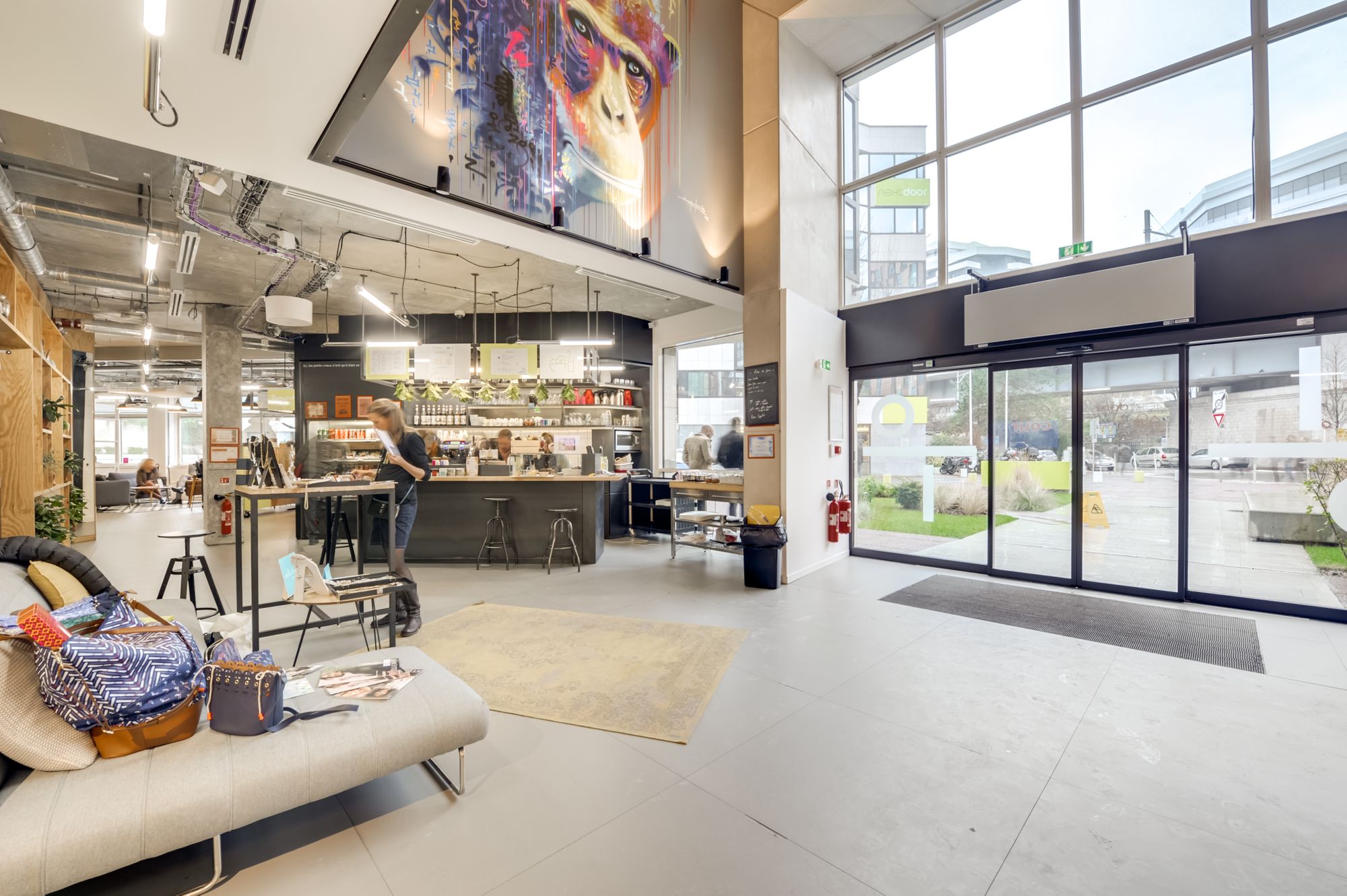
And what does Aurélie Dailloux hope for the future? “That Fernando will go to manage another building and I will be given this center and it will be my own...” And I know that when that day comes and Aurélie has her center she, and all those who work within its four walls, will feel truly at home.
If you aren’t already using Cobot as your coworking management software, give it a go! You’ll find that our features can help you run your coworking space more effectively and grow your community. Just sign up for a free trial or a live demo session. And if you have questions, our support team is all ears!
Happy Coworking!
